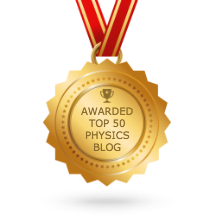Science-Based Medicine is dedicated to evaluating medical treatments and products of interest to the public in a scientific light, and promoting the highest standards and traditions of science in health care. Online information about alternative medicine is overwhelmingly credulous and uncritical, and even mainstream media and some medical schools have bought into the hype and failed to ask the hard questions.
We provide a much needed “alternative” perspective—the scientific perspective.
Good science is the best and only way to determine which treatments and products are truly safe and effective. That idea is already formalized in a movement known as evidence-based medicine (EBM). EBM is a vital and positive influence on the practice of medicine, but it has limitations and problems in practice: it often overemphasizes the value of evidence from clinical trials alone, with some unintended consequences, such as taxpayer dollars spent on “more research” of questionable value. The idea of SBM is not to compete with EBM, but a call to enhance it with a broader view: to answer the question “what works?” we must give more importance to our cumulative scientific knowledge from all relevant disciplines.
To me, this means that medical claims must not violate the laws of physics. Some do. For instance, magnetic therapy suggests that permanent magnets can prevent many diseases. Powerline (60 Hz) magnetic fields are said to cause cancer. A few people claim to be hypersensitive to weak electromagnetic fields. Many people believe that electromagnetic radiation associated with cell phones is dangerous. This belief has increased recently with the development of 5G technology. Somehow (and this is really weird), doubts about covid-19 vaccines became mixed up with these 5G concerns.
Yet, bioelectromagnetics has enormous potential for medical applications: cardiac pacing and defibrillation, transcranial magnetic stimulation, functional electrical stimulation, deep brain stimulation, and prostheses such as cochlear implants.
How do we separate the wheat from the chaff? It’s not easy. Reading Intermediate Physics for Medicine and Biology is a good place to start. Many of these readers would benefit from a short course about science-based medicine. Does such a course exist? Yes! Harriet Hall (the SkepDoc, who I discussed previously in this blog) has recorded a series of ten videos about science-based medicine. She debunks much of the nonsense out there. Below, I link to the videos. Your homework assignment is to watch them.
If the coronavirus pandemic has taught us anything, it’s that we must base medicine on science.



I am sad to say that Harriet Hall passed away on January 11, 2023. For more, see https://sciencebasedmedicine.org/we-are-saddened-to-announce-that-the-skepdoc-dr-harriet-hall-has-passed-away/
ReplyDelete